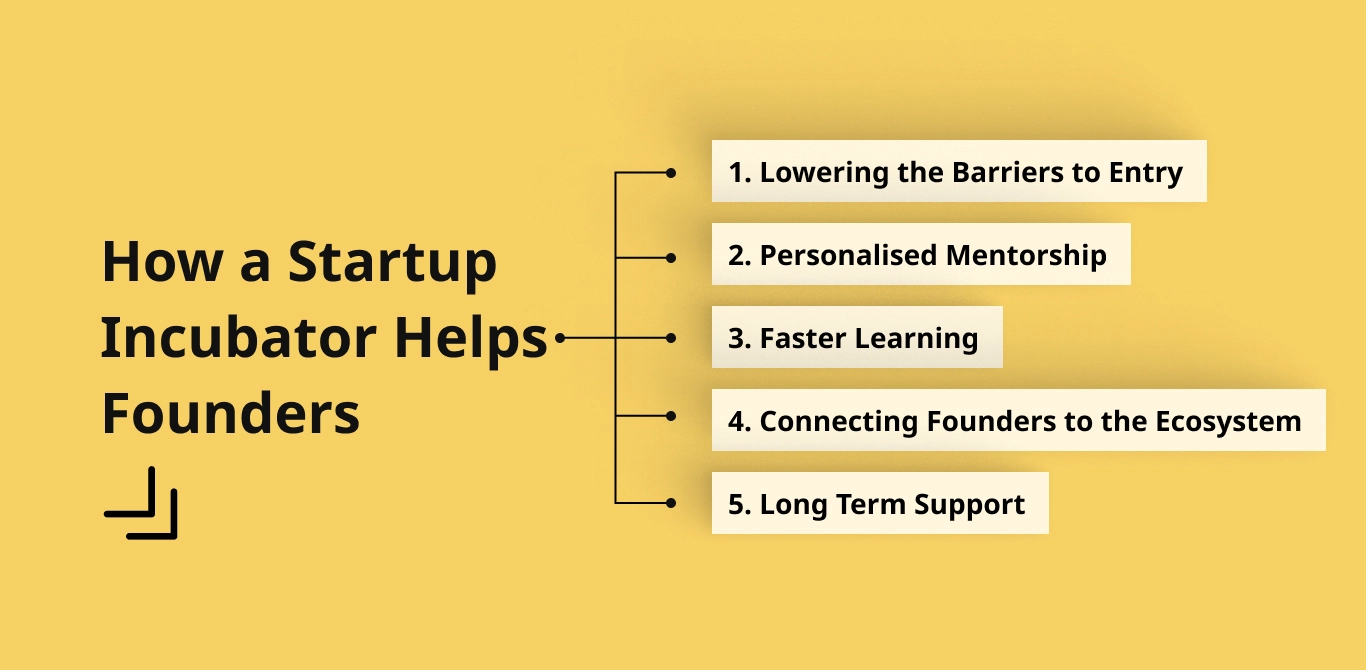In today’s fast-paced entrepreneurial landscape, launching a new venture is both thrilling and challenging. Turning a great idea into a successful business requires more than just ambition; it requires access to mentorship, resources, and a strategic environment. That’s where a startup incubator comes in.
A startup incubator is designed to support early-stage startups by providing them with the tools they need to grow sustainably. Whether you’re an aspiring founder or a startup in the ideation phase, understanding how a startup incubator works and how it can help could be your first step toward business success.
What is a Startup Incubator?
A startup incubator is a program that helps startups grow by offering a suite of services such as mentorship, training, administrative support, workspace, and access to funding opportunities. The main goal of a startup business incubator is to nurture innovative startups through their earliest and most vulnerable stages.
Unlike accelerators, which focus on rapid scaling and operate on fixed timelines, incubators offer more flexible and long-term support, often without the pressure of program-defined deadlines.
Key characteristics of startup incubators include:
- Flexible, non-competitive entry requirements
- Open-ended support periods (months or even years)
- Access to business resources and shared infrastructure
- Focus on the earliest stages of development
- A collaborative and educational environment
What do Startup Incubators offer?
Startup incubators typically offer a wide range of resources and services tailored to the needs of early-stage businesses. These services go far beyond just offering a desk and Wi-Fi – they are designed to create a foundation for sustainable growth.
1. Mentorship and Advisory Services
One of the most valuable offerings of a startup incubator is access to seasoned mentors and industry experts. These advisors provide hands-on guidance for everything from business strategy and product development to market entry and legal compliance.
2. Workshops and Training
Startup incubators often organize regular training sessions, seminars, and workshops to equip founders with essential skills. Topics include lean startup methodology, fundraising, branding, team building, and customer acquisition strategies.
3. Networking Opportunities
Being part of an incubator gives startups access to a larger entrepreneurial ecosystem. Founders can connect with other entrepreneurs, potential co-founders, service providers, and future team members, all under one roof.
4. Access to Funding
While not all incubators provide direct investment, they often facilitate introductions to angel investors, venture capital firms, and grant organizations. Some of the best startup incubators even offer seed funding or organize demo days for pitch opportunities.
5. Physical Workspace
Many startup incubator programs provide co-working or dedicated office space. This helps reduce overhead costs and places founders in a collaborative environment surrounded by peers, mentors, and service providers.
6. Back-Office Support
Many startup business incubator programs provide legal, HR, accounting, and marketing support, all of which are crucial but time-consuming for startup founders. Outsourcing these tasks lets founders focus on building their product and growing their business.
7. Access to Technology and Tools
Incubators often provide software, development tools, cloud credits, and access to technical expertise, giving startups a technological edge from day one.
How a Startup Incubator helps Founders

Startup incubators are designed to reduce the risks and loneliness of early-stage entrepreneurship. Here’s how they help:
1. Lowering the Barriers to Entry
Incubators remove or reduce the financial and logistical hurdles of starting a startup by providing shared office space, equipment, and administrative support.
2. Personalized Mentorship
One-on-one sessions, group mentoring, and access to professionals across domains, founders get tailored guidance that matches their business goals.
3. Faster Learning
Incubators provide structured learning experiences to help founders get business acumen quickly. This reduces the trial-and-error phase that solo founders go through.
4. Connecting Founders to the Ecosystem
From angel investors to government grants and lawyers, incubators are the gateway to the resources that founders would otherwise not have access to.
5. Long Term Support
Unlike accelerators, incubators support startups for a year or more. This means founders can grow steadily rather than sprint to short-term milestones.
Who should join a Startup Incubator?
A startup incubator is for:
- Early-stage startups with an idea but no structure or funding
- First-time entrepreneurs who need guidance and mentorship
- Founders who need a network to develop their idea or MVP
- Startups looking for long-term steady growth, not rapid acceleration
Choosing the right Startup Incubator
Choosing the right startup incubator program is key. Here’s what to consider:
- Specialization: Choose an incubator that knows your industry and target market.
- Mentor Access: Look for programs with mentors who match your startup’s needs.
- Facilities and Resources: Evaluate the space, infrastructure, and technical support.
- Alumni Success: A proven track record of previous successful startups is a big plus.
- Location: Localized engagement can often provide strategic advantages and greater support.
Some of the best startup incubators also offer flexible equity terms, strong investor networks, and hybrid or remote participation options, which are important for founders in today’s world.
Conclusion
A startup incubator is more than just a program. It’s a growth-enabling environment tailored to the unique challenges and needs of early-stage startups. With access to expert mentorship, structured programs, shared resources, and valuable networks, incubators help founders build, validate, and grow their businesses with confidence.
If you’re a founder looking for the right support system to bring your vision to life, working with a trusted startup business incubator could be the key to unlocking your potential.
One such resource-rich and innovation-driven incubator is The Field Group. Known for its customized startup incubator programs, strategic mentorship, and commitment to nurturing visionary entrepreneurs, The Field Group provides startups with what they need to take flight and thrive in a competitive landscape.
Turn your startup dream into reality – connect with us to get started.
FAQs:
What is the main difference between a startup incubator and an accelerator?
A startup incubator focuses on helping early-stage startups with long-term support such as mentorship, workspace, and foundational resources. In contrast, accelerators are intensive, short-term programs designed to rapidly scale startups that already have a product or traction.
Who should join a startup incubator program?
Startup incubator programs are ideal for early-stage entrepreneurs, especially those who have a promising idea or early traction but need guidance, mentorship, resources, or a professional network to turn their concept into a viable business.
Who can apply to an incubator?
Most incubators accept entrepreneurs or early-stage startups, often with a minimum viable product (MVP) or solid business concept. Some incubators focus on specific industries or demographics (e.g., tech, biotech, female founders).
What are the selection criteria?
Selection criteria often include: innovation, market potential, team experience, feasibility, and alignment with the incubator’s goals or industry focus.
Do incubators provide funding?
Some do, either in exchange for equity or as grants. Others help connect startups to investors but don’t directly fund. Most incubators have connections with angel investors, venture capitalists, or government grants and assist with pitch preparation and introductions.
What are the success rates of startups in incubators?
Success rates vary by industry and program, but incubated startups typically have a higher survival rate than those that go it alone.








